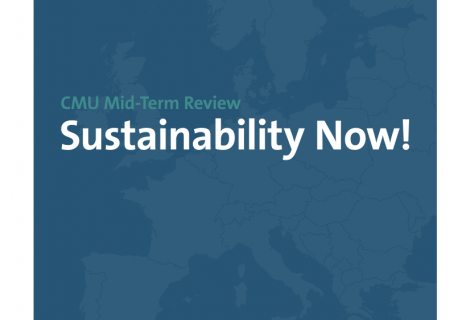
The Capital Markets Union (CMU) aims to stimulate the EU economy by further integrating the capital markets of Member States. The Action Plan on Building a Capital Markets Union was launched in 2015 with a four-year plan that included a Mid-Term review in 2017 to assess progress made. The Mid-Term Review included a public consultation that opened on 20 January 2017. The stated purpose of the consultation was a Call for Evidence on the progress of the CMU.
A number of civil society organisations submitted responses to the Call for Evidence, including Friends of the Earth Europe, ActionAid, Finance Watch, SOMO, Global Witness and WWF. Both the summary of the responses to the Call for Evidence and the Commission’s plans for going forward omitted the sustainability agenda and the other concerns raised by civil society organisations. This report outlines the priorities for integrating environmental, social and governance (ESG) matters into the CMU, and financial regulation more broadly.
ESG matters should be understood with reference to binding international human rights law incorporated in the treaties which make up the International Bill of Human Rights, ILO Conventions and binding environmental protection treaties, including the Paris Climate Agreement and soft law instruments including the UN Guiding Principles on Business and Human Rights. A holistic understanding of ESG is crucial to linking the concept of sustainable finance, which the Commission is currently promoting, to sustainable development.
The Mid-Term Review and subsequent regulatory activity as part of the CMU should include sustainability as a core element and provide for dialogue with civil society stakeholders to ensure the views of consumers, savers and the wider public are factored into the policy process. The CMU is supposed to be a cornerstone of a European economy that delivers for the people of Europe, and it is crucial to ensure there is room for diverse views and interests from various sectors of society, and that the process is not dominated by vested interests.
Failing to properly engage civil society in discussing the future of the EU’s capital markets would be a missed opportunity to ensure public acceptance of future EU strategy and policy, and to guarantee democratic decision-making based on dialogue with citizens and civil society. It also jeopardises the EU’s attainment of its sustainability objectives.